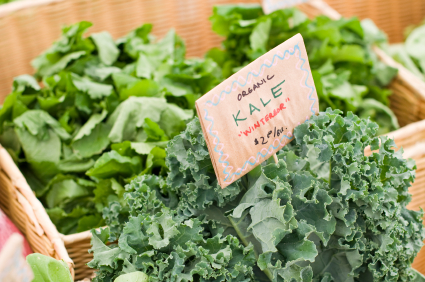Experts call it the “silent killer of women.”
And it’s no wonder why…
Most people think of heart disease as a “male” problem. Women don’t even experience the same symptoms. Yet heart disease is the #1 cause of death for women in the United States. 1
But new research reveals how a few simple changes to the diet could reduce a woman’s risk of heart attack.
You won’t have to go to the doctor. You won’t need a prescription. And if you eat the right foods, you may not even need to spend money on supplements.
These are foods everyone should be eating each and every day. And these are not specialty foods either. Which means you can get them at your local grocery store.
More than 32,500 women took part in a new study in Sweden. They ranged in age from 49 to 83 years.
Each completed a detailed survey about their eating habits – close to one hundred questions. Most dealt with frequency of foods consumed during the last year.
Researchers also took into account non-dietary factors. They looked at things like age, alcohol consumption, weight, education, family history, and smoking…. among other things.
The study followed these women for ten years, or until the date of heart attack or death. Whichever came first.
At the start of the study, all patients were healthy. None had any signs of cardiovascular disease. By the end of the study, 1,114 had suffered a heart attack.
When the team compared the patients’ diets, here’s what they found…
The women eating plenty of fruits and vegetables had less cardiovascular disease. The ones who consumed the most had the lowest risk. Those who ate the most had a 20% lower risk of heart attack.
Most, in this case, means almost seven servings of fruit and vegetables per day. That’s almost three times more than those who ate the lowest servings. Those women consumed less than 2.4 servings per day.
It’s even more evidence that when it comes to heart health, it all comes down to dietary antioxidants.
We already know these natural substances help protect against heart disease. Plenty of research already confirms it. But “our study,” says lead investigator, Alicja Wolk, “was the first to look at the effect of all dietary antioxidants in relation to [heart attacks].”2
Dr. Wolk is a professor of nutrition epidemiology at the Karolinska Institute in Stockholm. Her research was the first study of its kind that looked at how these antioxidants work together. It was also the first that looked solely for heart attacks in women.3
And sure enough, they saw a big difference between antioxidant levels in heart-healthy patients and those who had a heart attack.
Fruits and vegetables account for the highest levels of antioxidants.
Here’s the breakdown:
|
Food |
Total Antioxidant Capacity |
|
44% |
|
|
18% |
|
|
14% |
|
|
4% |
A diet based mostly on fruits, vegetables, and coffee is linked with lower incidence of heart attack. The antioxidants protect our cells and our heart from attack by free radicals. They also may help prevent LDL (the bad cholesterol) from being oxidized.
“Yet again evidence that diet is an important factor in preventive medicine,” says Dr. Joseph Alpert. He’s Editor-in-Chief of The American Journal of Medicine. Which, by the way, published the study.4
As this study was with women, the authors wrote “it cannot be generalized to men.”
But that doesn’t mean men can’t reap the benefits of a heart-healthy diet too.
Choose plenty of leafy greens and colorful fruits and vegetables. As always, choose organic.
Ten ideal sources of antioxidants are: apples (with peel), cherries, strawberries, blackberries, spinach, artichokes, broccoli, red and white potatoes (with peel), kidney beans, and pistachios.5
References:
1http://www.cdc.gov/dhdsp/data_statistics/fact_sheets/fs_women_heart.htm
2http://www.elsevier.com/wps/find/authored_newsitem.cws_home/companynews05_02472
3http://www.amjmed.com/article/S0002-9343(12)00328-2/fulltext
4http://amjmed.blogspot.com/
5http://www.mayoclinic.org/medical-edge-newspaper-2009/jun-05b.html

